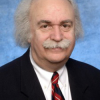Jack Levin

Jack Levin
Jack Levinspecializes in research on murder, prejudice and hate, sociology of aging and sociology of conflict at Northeastern University in Boston, Massachusetts. He has interviewed and corresponded with brutal killers, such as the Hillside Strangler and Charles Manson, and other violent criminals: serial killers and rapists, mass murderers, and vicious hatemongers. He is also asked by news and television reports to comment on important occurrences of homicide or hate. Along with interviews, writing material, teaching classes and research Levin has...
ProfessionNon-Fiction Author
Date of Birth28 June 1941
apparently nobody noticed before this disaster that the crime rate was always extremely high in New Orleans.
I would say he's euphoric at this point. If we don't stop him, he will kill again.
These are people who are alienated and don't really identify with their fellow residents in any positive way. They feel the tragedy is an opportunity for them.
Maybe he had a friend who was abused by an offender or a sibling or someone in his past who was very close. It doesn't have to be him. It could be an intimate in his life.
These things take a while to sink in before people decide they're not going to take it anymore. I don't think we're there yet.
Building prisons to fight crime is like building cemeteries to fight disease.
We forget just how manipulative and shrewd and crafty some of these guys are. They have the street smarts necessary to convince these women that they're innocent guys and that they're genuinely in love.
We make celebrities out of serial killers. They're glamorized and romanticized. People forget about the gruesome details of their crimes.
We're having the best time of our lives.